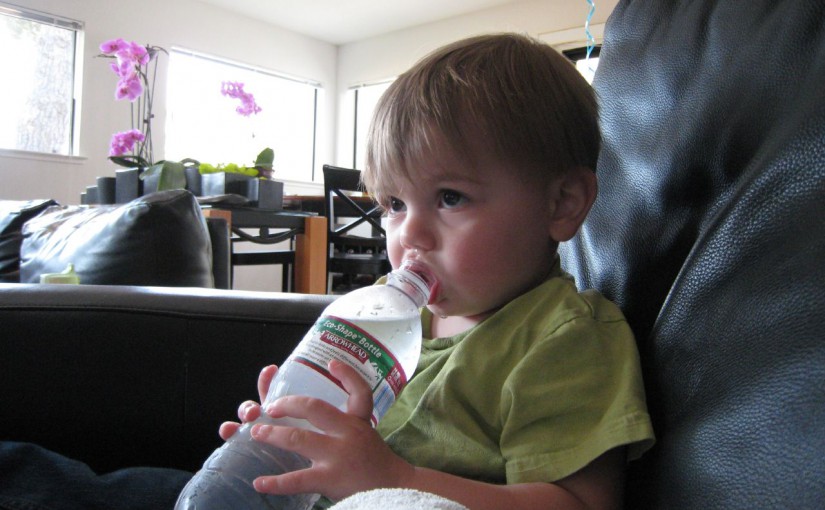(Photo credit: Neeta Lind/Flickr)
We all need water to survive; there’s no question about it. But it’s where we get it from that’s up for debate. Depending on your lifestyle, there’s a vast array of sources to choose from: well water, a mountain spring, municipal tap water – as is, municipal tap water – filtered by a whole home system, municipal tap water – filtered with a POU or jug system, individual-use bottles, commercial water delivery, etc. There’s definitely something for everyone; it’s just important to know more about the water you’re drinking.
Bottled Water
Canadians bought 2.4 billion litres of bottled water in 2013, which is a five per cent increase in sales from 2012, according to Euromonitor International. A 2006 study by Statistics Canada found that about three in ten households rely on bottled water as their main source of drinking water and of those households, one third of them were families with working parents and children under the age of 18.
Bottled water is an easy, grab-and-go solution and it’s good to have around the house when you’re running late to your kid’s soccer game, but there are some aspects to be aware of when choosing it. Canadian researchers discovered that 70 per cent of the bottled water brands they tested had high levels of heterotrophic bacteria, which is a type of bacteria that grows in an area with dead organic matter. While these bacteria are unlikely to cause any diseases and researchers haven’t found any signs of bacteria that would, the water could be a risk to seniors, pregnant women, infants and Canadians with compromised immune systems.
Some people prefer the taste of bottled water to tap water and the quality of bottled water is regulated by Health Canada and the Canadian Food Inspection Agency, which ensures the water you’re drinking is safe for consumption.
Tap Water
Canadians are lucky to have access to some of the safest tap water in the world. All levels of government are involved in providing safe drinking water to residents, with provinces and territories following Health Canada’s Guidelines for Canadian Drinking Water Quality. These guidelines address concerns including microbiological quality, chemical and radiological quality as well as aesthetic and operational parameters.
We only access water from taps at home, work or school, but there are three main elements involved in providing us with clean water to fill our glasses: the water source, the water treatment system and the distribution system. Each part of this system needs to remain free of contamination for our own health and safety. The 2000 Walkerton tragedy is an example of what happens when our water is tainted and the importance of proper monitoring.
Health Canada continues to monitor water quality by conducting surveys of tap water and water treatment facilities to measure the presence of any potential contaminants, by-products or inorganic substances. Some households continue to boil or filter their water to ensure its safety.
Added benefit: most municipally sourced tap water has fluoride added to it. This mineral protects us from dental decay, which happens when bacteria feeds on sugar found in some foods and creates acid. This acid breaks down your tooth’s outside layer, the enamel, which over time leads to tooth decay and ultimately cavities pain, infections and tooth loss, if left untreated.
Strauss Water
Strauss Water Canada’s WaterBar gives Canadians another water option. Health Canada offers many checks and balances in your bottled and tap water, but our WaterBars can give you that extra peace of mind.
Our triple water filtration and purification process kills 99.9% of micro-organisms and bacteria, while absorbing the chlorine that can impair the taste of water. WaterBars use an activated carbon filter, a micro-mesh filter and ultra violet light to deliver safe, great tasting water, which is packed with essential mineral elements including calcium and magnesium.
Avoid dehydration this summer, but ensure that the water you’re drinking is good for your health. If your kids need some convincing to stay hydrated, there are liquid water enhancers and natural ways to add flavour and quench their thirst.
